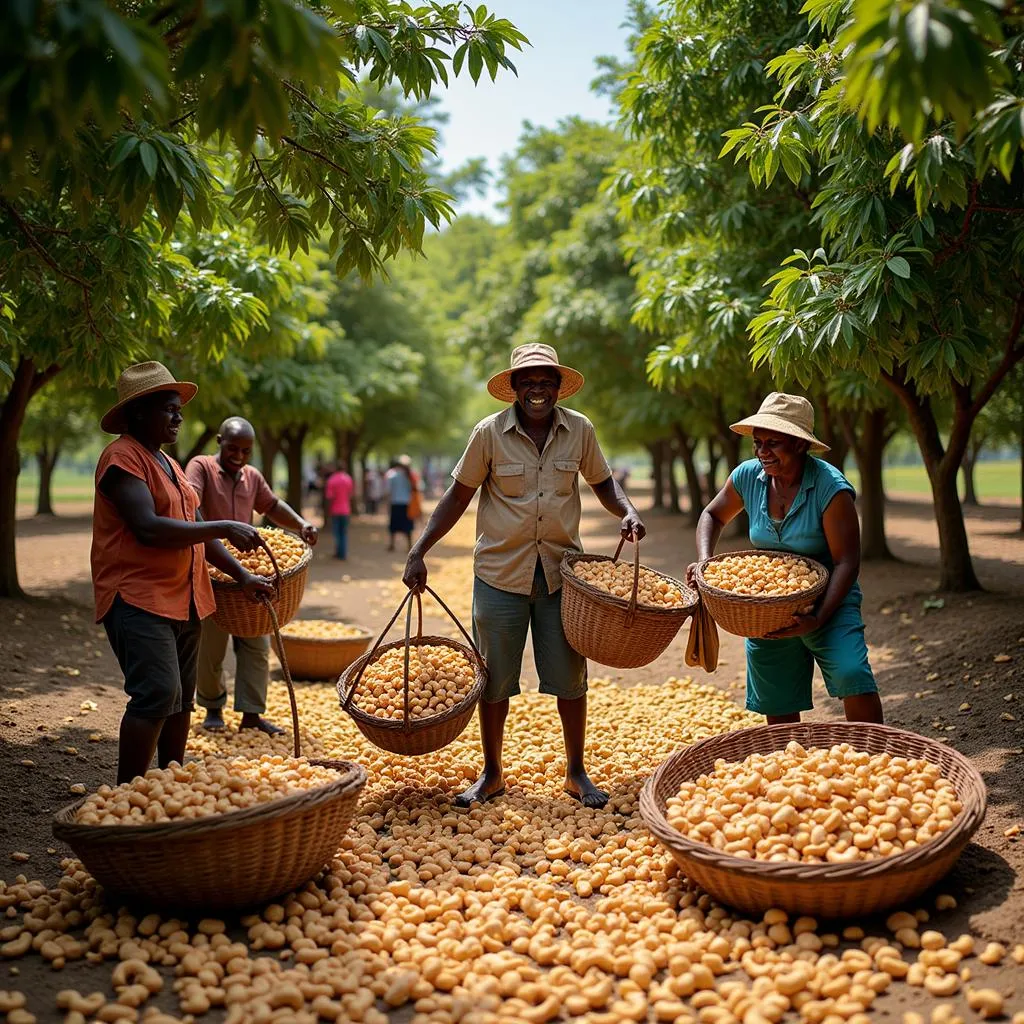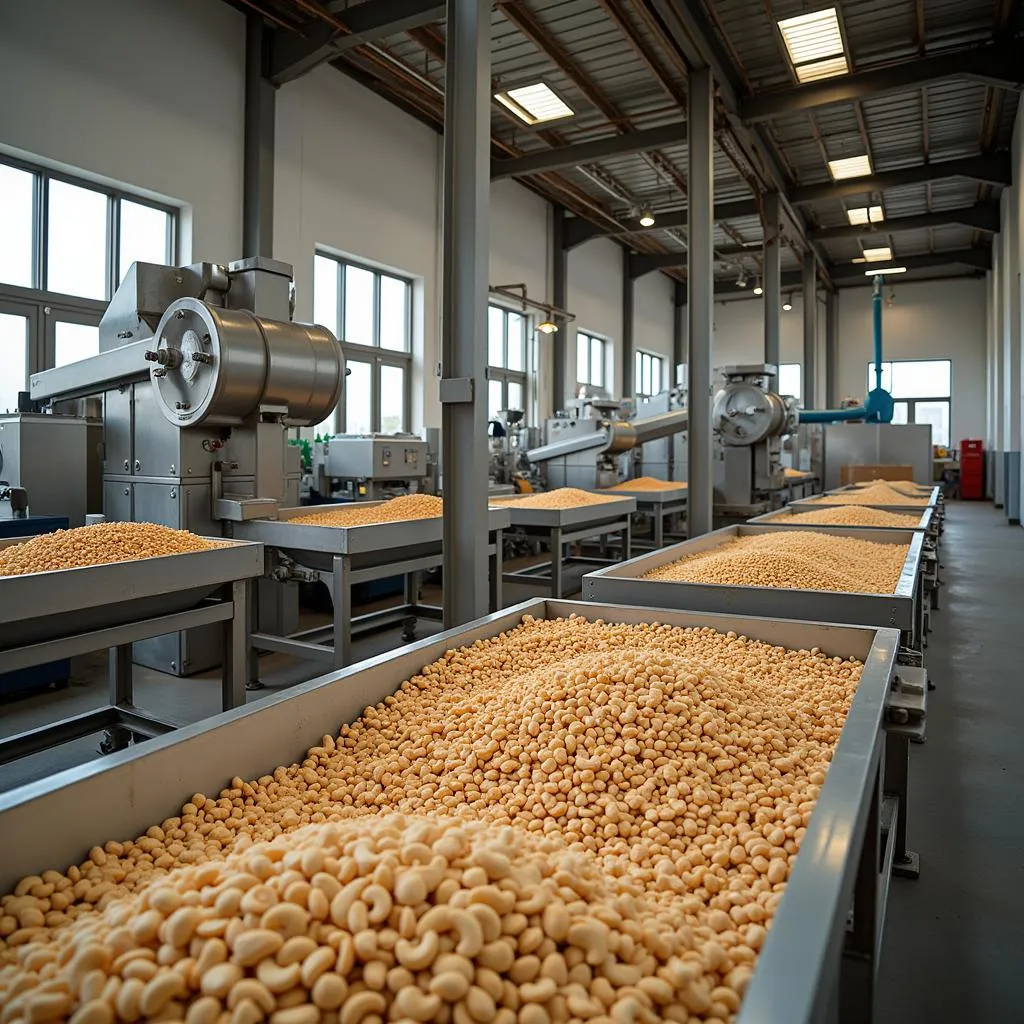Cashew nuts are a delicious and nutritious snack, and Africa is one of the world’s leading producers. But how much do African cashew nuts cost, and what factors affect the price? This comprehensive guide will explore the world of African cashew nuts, delving into the factors that influence their price and providing insights into market trends.
Factors Influencing African Cashew Nuts Price
The price of African cashew nuts is subject to fluctuations driven by a complex interplay of factors. Understanding these factors is crucial for both buyers and sellers seeking to navigate the market effectively.
Global Supply and Demand
As with any commodity, the fundamental principle of supply and demand plays a significant role in determining cashew nut prices. When global production is high and demand is low, prices tend to decrease. Conversely, when supply is limited and demand is high, prices rise.
Weather Conditions
Cashew trees are particularly sensitive to weather changes. Unfavorable weather conditions such as droughts, floods, and pests can significantly impact crop yields, leading to supply shortages and price increases.
Processing and Value Addition
The level of processing also affects the price of cashew nuts. Raw, unprocessed cashews are typically cheaper than roasted, salted, or flavored varieties. Countries that invest in value addition through processing and packaging can command higher prices for their cashew nuts.
Exchange Rates
International trade in cashew nuts is conducted in US dollars. Fluctuations in exchange rates between the US dollar and the currencies of African producing countries can impact the price of cashews for both importers and exporters.
Transportation Costs
Cashew nuts are a bulky commodity, and transportation costs can account for a significant portion of the final price. Factors such as fuel prices, shipping routes, and infrastructure development all influence transportation costs.
 Harvesting African Cashew Nuts
Harvesting African Cashew Nuts
African Cashew Nut Producing Countries
Several African countries are major players in the global cashew nut market, each with its own unique characteristics and production dynamics.
Côte d’Ivoire: The Cashew King
Côte d’Ivoire is the world’s largest producer of cashew nuts, accounting for over 40% of global production. The country has invested heavily in the cashew industry, with a focus on increasing yields and improving processing capabilities.
Tanzania: Rising Star
Tanzania has emerged as a significant cashew nut producer in recent years, with production increasing rapidly. The country’s favorable climate and fertile soils provide ideal conditions for cashew cultivation.
Nigeria: Potential Powerhouse
Nigeria has vast untapped potential for cashew nut production. The country has a large land area suitable for cashew cultivation and a growing domestic market.
Other Major Producers
Other African countries that contribute significantly to global cashew nut production include Benin, Ghana, Kenya, Mozambique, and Senegal.
Market Trends and Outlook
The global demand for cashew nuts is expected to continue growing in the coming years, driven by increasing consumer preference for healthy snacks and the use of cashews in plant-based food products. This presents a significant opportunity for African cashew nut producers to expand their production and capitalize on the growing market.
Organic and Fair Trade Cashews
There is a growing demand for organic and fair trade cashew nuts, particularly in developed countries. Consumers are increasingly aware of the environmental and social impacts of their food choices and are willing to pay a premium for products that meet ethical standards.
Value-Added Products
African cashew nut producers are increasingly investing in value addition to increase their earnings. This includes processing cashews into products such as cashew butter, cashew milk, and cashew-based snacks.
Sustainability and Traceability
Sustainability and traceability are becoming increasingly important considerations in the cashew nut market. Consumers want to know where their food comes from and how it was produced.
 Cashew Nut Processing Plant in Africa
Cashew Nut Processing Plant in Africa
FAQs about African Cashew Nuts Price
What is the average price of African cashew nuts?
The price of African cashew nuts varies depending on several factors, including supply and demand, quality, processing level, and origin. However, as a general guide, raw cashew nuts from Africa can range from $3 to $6 per kilogram.
Why are cashew nuts so expensive?
Cashew nuts are relatively expensive compared to other nuts due to the labor-intensive harvesting process and the unique structure of the cashew fruit.
Where can I buy African cashew nuts?
African cashew nuts are widely available in supermarkets, specialty stores, and online retailers. Look for products that are sourced from reputable suppliers and that meet your quality and ethical standards.
Conclusion
The African cashew nut market is dynamic and offers significant opportunities for growth. By understanding the factors that influence prices and staying abreast of market trends, both buyers and sellers can navigate this exciting market effectively.
As consumer demand for healthy and sustainably produced food continues to grow, African cashew nuts are poised to play an increasingly important role in the global food system. If you are looking for a delicious and nutritious snack that supports African farmers and businesses, be sure to add African cashew nuts to your shopping list!
For any inquiries or assistance regarding African cashew nuts, please contact us at:
Phone Number: +255768904061
Email: [email protected]
Address: Mbarali DC Mawindi, Kangaga, Tanzania.
Our dedicated customer support team is available 24/7 to assist you.
Leave a Reply